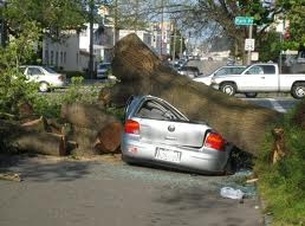
Here is a good entry from the Buildium Blog, (authored by Colin McCarthy, J.D. of Robinson & Wood in San Jose, CA) which Neighborhood Property Management regularly monitors for content we think would be useful to our income property owning clients.
When can a resident sue? Or saying the same thing differently as us lawyers like to do: When can the landlord be sued? When there is a lawsuit, what does the plaintiff (the party suing) have to prove to recover? What does the landlord have to disprove to defend against such suits?
In California, a tenant will be able to successfully sue the landlord for negligently caused harm sustained on the property if she proves four different facts. If you are clever and were paying attention you’d know that I just told you the four facts in the proceeding sentence. There are some variations but in essence, the tenant plaintiff will have to prove:
After the plaintiff figures out who leased/occupied/owned and/or controlled the premises on which she was injured, she next has to show “negligence.”* That basically means showing that the defendant was not being careful with respect to the property.
Just because a lessor/occupier/owner/controller was negligent does not mean that the plaintiff prevails. The plaintiff still has to show that the negligence contributed to her injuries such as to impose legal liability for the same. One can be negligent, but if does not harm anyone, there is no liability.
This blog submission is only for purposes of disseminating information. It does not constitute legal advice. The statements in this blog submissions do not necessarily reflect the opinions of Robinson & Wood, Inc. or its clients. No attorney-client relationship is formed by virtue of reading this blog entry or submitting a comment thereto. If you need legal advice, please hire a licensed attorney in your state.
When can a resident sue? Or saying the same thing differently as us lawyers like to do: When can the landlord be sued? When there is a lawsuit, what does the plaintiff (the party suing) have to prove to recover? What does the landlord have to disprove to defend against such suits?
In California, a tenant will be able to successfully sue the landlord for negligently caused harm sustained on the property if she proves four different facts. If you are clever and were paying attention you’d know that I just told you the four facts in the proceeding sentence. There are some variations but in essence, the tenant plaintiff will have to prove:
- That the defendant owned or leased or occupied or controlled the property on which she was harmed;
- That the defendant “was negligent” with respect to the property’s use or how it was maintained;
- That the plaintiff sustained an injury or property damage; and
- That the “defendant’s negligence” was a legal cause of that injury or property damage.
After the plaintiff figures out who leased/occupied/owned and/or controlled the premises on which she was injured, she next has to show “negligence.”* That basically means showing that the defendant was not being careful with respect to the property.
Just because a lessor/occupier/owner/controller was negligent does not mean that the plaintiff prevails. The plaintiff still has to show that the negligence contributed to her injuries such as to impose legal liability for the same. One can be negligent, but if does not harm anyone, there is no liability.
This blog submission is only for purposes of disseminating information. It does not constitute legal advice. The statements in this blog submissions do not necessarily reflect the opinions of Robinson & Wood, Inc. or its clients. No attorney-client relationship is formed by virtue of reading this blog entry or submitting a comment thereto. If you need legal advice, please hire a licensed attorney in your state.
 RSS Feed
RSS Feed